We are supervising students writing their thesis at various levels: bachelor’s students, master’s students (including from the Global-MINDS Program), clinical psychology students and PhD students. Below you can find more information and examples of previous research.
Are you currently a bachelor’s student at the University of Oslo and want to write an empirical bachelor’s thesis, in which you conduct and report a smaller research study? Writing an empirical thesis constitutes a unique opportunity to gather first-hand experience in all steps involved in a research project but often also involves more work. It is therefore smart to start planning the thesis early. Several bachelor’s students that were supervised by us were able to publish their thesis in form of articles in international, peer-review journals (see examples on the right side). Please contact us if you are interested in supervision on your bachelor’s thesis.
Bachelor’s students who published internationally
Many people enjoy eating meat but dislike causing pain to animals. One way they deal with this “meat paradox” is to dissociate the meat they consume from its animal origins. Research on this process has increased significantly over the past years, but no attempt had been made to summarize and synthesize this literature. To fill this gap, Nora Benningstad conducted a systematic literature review giving an overview over the state of the art and suggesting future direction. Her bachelor’s thesis was subsequently published as a first-authored article in Appetite and can be read here.
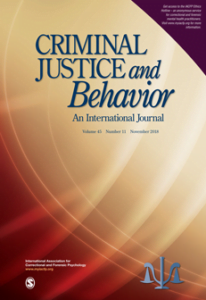 Lisa S. Myhren conducted a research project, showing that people have racially Whiter mental representations of terrorists who are said to be motivated by a mental disorder than of those who are said to be motivated by political ideology. The research resulted in a publication in the respected journal Criminal Justice & Behavior on which she is shared first author. You can read the article here.
Lisa S. Myhren conducted a research project, showing that people have racially Whiter mental representations of terrorists who are said to be motivated by a mental disorder than of those who are said to be motivated by political ideology. The research resulted in a publication in the respected journal Criminal Justice & Behavior on which she is shared first author. You can read the article here.
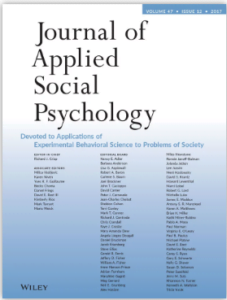 In his thesis, Ole Jørgen Johansson was interested in the social psychological mechanisms that drive prejudice toward mentally ill individuals. Using a convenient sample and a sample of medical personell and aspirants, he showed that individuals who believed that relationships between social groups should be hierarchical (rather than egalitarian), showed the least empathy toward individuals with mental disorders and tended to blame them for their misery. His research was consequently published as article in Journal of Applied Social Psychology. You can read the article here.
In his thesis, Ole Jørgen Johansson was interested in the social psychological mechanisms that drive prejudice toward mentally ill individuals. Using a convenient sample and a sample of medical personell and aspirants, he showed that individuals who believed that relationships between social groups should be hierarchical (rather than egalitarian), showed the least empathy toward individuals with mental disorders and tended to blame them for their misery. His research was consequently published as article in Journal of Applied Social Psychology. You can read the article here.
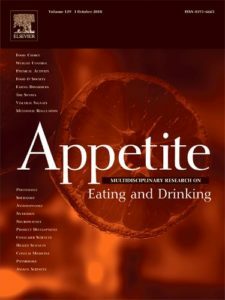 In a previous line of our research, we showed how presenting consumers with reminders of meat’s animal origins can increase empathy and disgust, thereby leading to less willingness to eat meat and a higher likelihood to chose vegetarian. A limitation of this research was that it was conducted with U.S. American participants only – a group that generally is little exposed to unprocessed meat on a daily basis. Christian Andres Palacios Haugestad collected data from Ecuador, showing that the effects of being reminded of meat’s animal origins was substantially weaker among Ecuadorians. Christian is shared first author on an article that was published based on his thesis in the respected journal Appetite. You can read more here.
In a previous line of our research, we showed how presenting consumers with reminders of meat’s animal origins can increase empathy and disgust, thereby leading to less willingness to eat meat and a higher likelihood to chose vegetarian. A limitation of this research was that it was conducted with U.S. American participants only – a group that generally is little exposed to unprocessed meat on a daily basis. Christian Andres Palacios Haugestad collected data from Ecuador, showing that the effects of being reminded of meat’s animal origins was substantially weaker among Ecuadorians. Christian is shared first author on an article that was published based on his thesis in the respected journal Appetite. You can read more here.
Master’s students who published internationally

Nora C. Benningstad‘s master thesis, developing a scale to measure two distinct processes through which consumers dissociate meat from animal origins, was published in PHAIR. Read more about the research here.

Melvin Treider‘s master thesis on how musical parameters and subjective musical experiences shape our perceptions of other cultures was published in Scientific Reports. Read more about the research here.
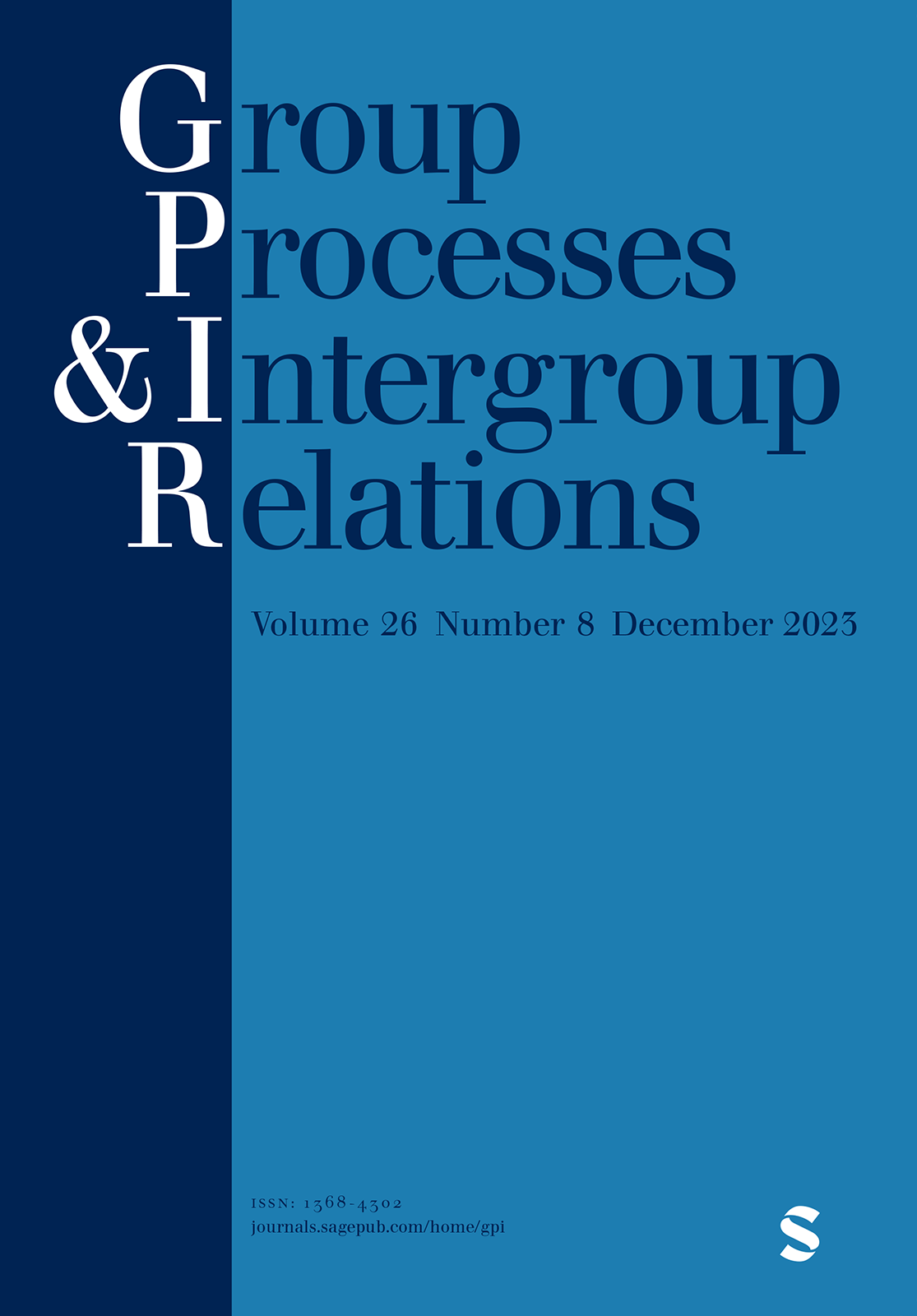 Marilena Juettemeier‘s master thesis on androcentrism (the gender bias to view men as the default category) in mental imagery was published in the well-respected outlet Group Processes & Intergroup Relations. Read more about the research here.
Marilena Juettemeier‘s master thesis on androcentrism (the gender bias to view men as the default category) in mental imagery was published in the well-respected outlet Group Processes & Intergroup Relations. Read more about the research here.
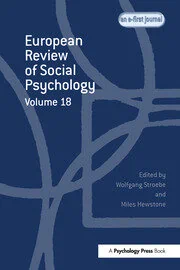 An international team including clinical psychology student Anders Varmann conduted a meta-analysis on identity fusion that was published in the reputable outlet European Review of Social Psycholgy. Read more about the research here.
An international team including clinical psychology student Anders Varmann conduted a meta-analysis on identity fusion that was published in the reputable outlet European Review of Social Psycholgy. Read more about the research here.
 Christian Palacios Haugestad and Anja Duun Skauge conducted a mixed-method investigation of the #FridaysForFuture protests, which was published in the leading outlet Journal of Environmental Psychology. Their research also won the award for sustainability at the University of Oslo. Read more about his research here.
Christian Palacios Haugestad and Anja Duun Skauge conducted a mixed-method investigation of the #FridaysForFuture protests, which was published in the leading outlet Journal of Environmental Psychology. Their research also won the award for sustainability at the University of Oslo. Read more about his research here.
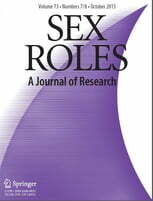 Aleksander Gundersen conducted a series of studies, showing that, even in gender-egalitarian Norway, people have biased mental representations of feminists. Using a cognitive test (the reverse correlation technique), he tapped participants’ visual respresentations of feminist women and men, showing that the former are represented as more masculine and the latter as more feminine. His research resulted in a first-authored publication in the respected journal Sex Roles and was also featured in national and international media. Read more about his research here.
Aleksander Gundersen conducted a series of studies, showing that, even in gender-egalitarian Norway, people have biased mental representations of feminists. Using a cognitive test (the reverse correlation technique), he tapped participants’ visual respresentations of feminist women and men, showing that the former are represented as more masculine and the latter as more feminine. His research resulted in a first-authored publication in the respected journal Sex Roles and was also featured in national and international media. Read more about his research here.
 Although acculturation is commonly defined as a two-way process, most research had only focused on how immigrants adapt to the culture of the societal majority. In her thesis, clinical psychology student Ingvild Haugen, for the first time, investigated how the cultural self-concept of majority-group members changes due to contact with immigrants and their cultures. Her research resulted in a first-authored publication in International Journal of Intercultural Relations. Read more about her research here.
Although acculturation is commonly defined as a two-way process, most research had only focused on how immigrants adapt to the culture of the societal majority. In her thesis, clinical psychology student Ingvild Haugen, for the first time, investigated how the cultural self-concept of majority-group members changes due to contact with immigrants and their cultures. Her research resulted in a first-authored publication in International Journal of Intercultural Relations. Read more about her research here.
 Many minority group members have to deal with expectations and norms from both the majority group and their own minority groups. Esther N. Phillibert was interested in how this may affect the well-being and acculturation of African immigrants in Norway. She here focused on the experience of skin tone discrimination — a type of discrimination African immigrants can experience both by majority-group members and by members of their own minority groups. While Esther found that the actual skin tone of African immigrants was unrelated to experiences of skin tone discrimination, she found that both types of discrimination distinctively predicted their acculturation and through this was linked to their life satisfaction. Her research resulted in a shared first-authored publication in PLOS One. Read more about it here.
Many minority group members have to deal with expectations and norms from both the majority group and their own minority groups. Esther N. Phillibert was interested in how this may affect the well-being and acculturation of African immigrants in Norway. She here focused on the experience of skin tone discrimination — a type of discrimination African immigrants can experience both by majority-group members and by members of their own minority groups. While Esther found that the actual skin tone of African immigrants was unrelated to experiences of skin tone discrimination, she found that both types of discrimination distinctively predicted their acculturation and through this was linked to their life satisfaction. Her research resulted in a shared first-authored publication in PLOS One. Read more about it here.
 The Roma are one of the most stigmatized groups in Norway. In public discourse, they are often portrayed negatively and labelled as being unhygienic. Madeleine M. Dalsklev was interested in the effects such portrayals could have on media consumers. She found that presenting Roma as unhygienic in Newspaper articles led people to dehumanize the group, which in turn predicted support for their deportation out of Norway. Her research resulted in a first-authored publication in International Journal of Intercultural Relations. Read more about it here.
The Roma are one of the most stigmatized groups in Norway. In public discourse, they are often portrayed negatively and labelled as being unhygienic. Madeleine M. Dalsklev was interested in the effects such portrayals could have on media consumers. She found that presenting Roma as unhygienic in Newspaper articles led people to dehumanize the group, which in turn predicted support for their deportation out of Norway. Her research resulted in a first-authored publication in International Journal of Intercultural Relations. Read more about it here.
It has been argued that sports contexts may be suitable venues for reducing intercultural hostility, including its more extreme forms. Ann-Cathrin Coenen investigated the influence of two sets of factors on support for violent extremism: (a) ethnic diversity of teams, and (b) team members’ intercultural perceptions, including perceived social capital, contact experiences and diversity ideologies within the team. Her research resulted in a first-authored publication in International Journal of Intercultural Relations. Read more about it here.
 In times of the coronavirus, complying with public health policies is essential to save lives. Frederike S. Woelfert investigated the role of political and social trust for social distancing using a variety of methods. Her project consisted in three different studies, two in the UK and one at a national level in 65 different countries. The potential positive and unexpected negative effects of social trust for social distancing are discussed. Her research resulted in a first-authored publication in Frontiers in Psychology. Read more about it here.
In times of the coronavirus, complying with public health policies is essential to save lives. Frederike S. Woelfert investigated the role of political and social trust for social distancing using a variety of methods. Her project consisted in three different studies, two in the UK and one at a national level in 65 different countries. The potential positive and unexpected negative effects of social trust for social distancing are discussed. Her research resulted in a first-authored publication in Frontiers in Psychology. Read more about it here.
Writing a master’s thesis allows students to conduct more comprehensive research projects. Especially for students who consider an academic career (i.e., who wish to take a PhD), the quality of the thesis and potential publications resulting from it can increase their chances to be admitted to a PhD program later on. To be able to conduct a compelling research project, starting early is key. If you are a master’s or clinical psychology student and would like to be supervised on your thesis, please contact us.